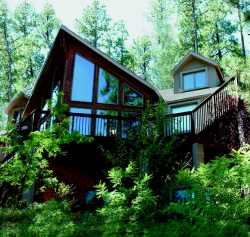Not only is Eskom becoming more and more expensive as time goes on, but it is still as unreliable as ever. The average household will be paying at least double for the same amount of electricity within three years!

For most of us converting the entire home to an alternative energy source would be prohibitively expensive, but regardless of the monetary fact everybody should be working towards this goal – as not only is it less expensive, but it is far more eco-friendly as well. Let us have a look at what uses up the most power in the home, and show some energy alternatives that are friendlier on the pocket and the environment to run:
Solar geysers = Free water
Solar power seems so far out of our reach because the average solar geyser is at least three times more expensive to buy and have installed than its electrical counterpart. ‘The solar system’ with the Eskom rebate is still comparatively expensive, but just think about the fact that apart from the annual maintenance costs, you will eventually have hot water free of charge for the rest of your life. And in the case of a blackout, you will still be able to have a hot bath.

Due to the amount of sun and cloudless days we have in South Africa, you will never be short of hot water using a solar system. The average cost of buying and installing a solar geyser in your home is about R15 000, although it can be a lot higher. After Eskom’s 15% rebate, you will actually only be paying R12 750 for the system. If you work out the amount of money you will save per month on your electricity bill, the average household would have paid back the geyser within seven years. After this, all the hot water in your home is absolutely for free.
There are companies out there however, such as Teljoy for example, which will sell you a solar geyser on higher purchase. These geysers are recognised by Eskom, and although buying items on credit is usually not a good financial move, in this case, the company has noted that your instalments will amount to the money you will save on your monthly electricity bill once the solar geyser has been installed. So for the first seven to eight years, you will be paying the same amount from your account each month as if you were still running on an electrical geyser. The good times start the minute the geyser is paid off and you no longer have to pay for hot water anymore.

Gas water heaters
This is the cheaper of the two geyser alternatives, but in the end, it leaves you reliant on the gas supply. A gas water heater works on the very simple principal of heating only the water you need. You can buy the smaller water heaters and have one placed in each room where hot water is needed, or you can opt to buy a large heater, located on the exterior of your home and capable of heating enough water for all your home’s requirements. Having spoken to a number of people who run these gas water heaters, it seems that the average household, consisting of three people, will use a 19kg bottle of gas every six to eight weeks. This works out at about R200 per month in hot water bills. To give yourself an idea of what you will save, take your existing water bill, and you can estimate that approximately 40% of the total it is from your electric geysers.
Stoves
Cooking also uses up a lot of electricity - the average family of four will cook one and a half times per day, which requires a substantial amount of electricity. You can considerably cut down on energy use if you merely replace your electric hob with a gas hob, and keep the electric oven. In these cases, a 19kg gas bottle should last the average home for approximately three months, which will cost you in the region of R100 per month.

Pools
If you have a swimming pool on your property, it is highly advisable to reduce the number of hours it runs, as they use a considerable amount of power. Most homeowners run the pool for six hours a day in winter and about 18 hours in summer – however, this can be reduced by half and not only will you still have a lovely clear, blue pool, but you will also be able to save a considerable amount of money every month. - Antonella Dési
Readers' Comments Have a comment about this article? Email us now.
I am an electrician so please take this from where it comes. The Teljoy solar geyser you have referred to is not a very good product for the following reasons:
- It is a direct system which means that the water that gets heated up gets used by the consumer and then the whole cycle has to start again. This often causes the element to be used to heat it up if you need more hot water.
- There have been numerous complaints about the product and how effective the heating system is. I have a client who gets a maximum reading of 33 degrees on a sunny day. Teljoy have offered to change the panel to a tube system. This can only be because they are realizing that there is a problem.
- I stand to be corrected but the system you are talking about is only 150 litres.
An indirect system works a lot better because the water that gets heated stays in the tank. A copper tube runs through the tank and heats up the cold water. I am experiencing 70 degrees on a cold sunny day using the Enervision system which averages around R 16500.00 for a 250 litre geyser. As the water is been heated indirectly you can run the water until the temperature drops in the tank so you will get a lot more than 250 litres from it.
I have switched off power to the geyser totally and only need it on when we have 2 days of over case weather.
I feel sorry for people who waste there money on the Teljoy geyser just for the hire purchase option because they do not experience much of a difference on their electrical bill. – Roger Bonte
"...You can considerably cut down on energy use if you merely replace your electric hob with a gas hob..."
The statement above refers.
I am an Engineer with 20yrs experience in Energy consulting.There are many misnomers about this,so briefly:
- The Energy requirement to perform a particular process of cooking will always stay the same value,hence you will not reduce the Energy usage unless you are running an inefficient system and change to a more efficient system etc
- Typically,in this country LPG Gas is more expensive than household electricity. Remember,you are buying gas for Rands per Energy unit and not only for Rands per kg. The dme has now had the LPG price capped so that more people will use it and assist ESKOM in their struggle.
- A typical counter-argument is that LPG heat is "instant" and therefore cheaper.It is "instant" because it has a stroger "Radiant" term than is the case with most stove plates. This, however ,merely means that there is more Energy consumption over a short period of time.
Truly, I am not attempting to be "wise-ass", merely wanting to assist.
Should you have further energy queries,please contact me on my signature details below. – Bertie Le Roux
In respect of the previous readers comments on direct and indirect systems for solar heating are a bit miss conceived. A direct system that heats water directly into the geyser should yields a better efficiency that an indirect system that uses glycol or some other medium to transfer heat to the water in the tank though the copper coils. The indirect system experiences losses due to the transfer process from one medium to the other ie. The collector to the glycol, the glycol to the copper transfer coil and the copper coil to the water. The difference in direct and indirect is not the cause of the problem here it is more the efficiency of the collector itself. The reader may have a evacuated tube collector which tend to be quite efficient but are over the life more prone to problems and maintenance issues (also possible hail damage). The Eskom web site has a great deal of information on solar geyser selection as well as advantages and disadvantages of each system. – Garry Coady








